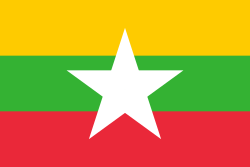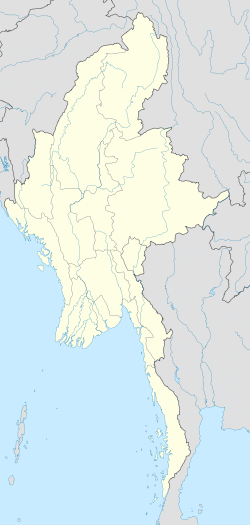This article needs additional citations for verification .(September 2021) |
| Myanmar at the Southeast Asian Games | |
|---|---|
 | |
| IOC code | MYA |
| NOC | Myanmar Olympic Committee |
| Website | www |
| Medals |
|
| Southeast Asian Games appearances (overview) | |
Myanmar has competed in every Southeast Asian Games since 1959.Myanmar hosted the games in 1961, 1969 and 2013 in Yangon and Naypyidaw.

